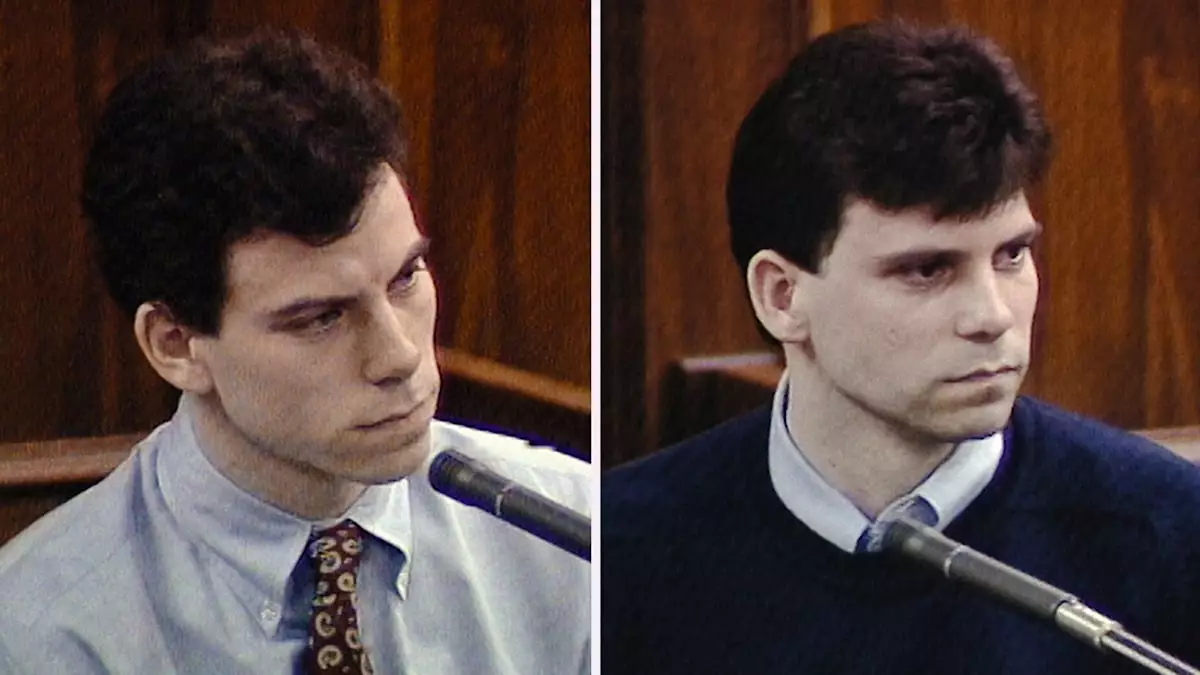The Menendez brothers, Lyle and Erik, who gained national notoriety for the 1989 murders of their parents, José and Kitty Menendez, remain imprisoned decades after their conviction. While their case has been the subject of widespread media scrutiny, it has recently garnered renewed interest, particularly following the release of a Netflix series that delves into their complex narrative. On October 16, during a press conference attended by around 20 family members, including José’s niece Ana María Beralt, calls for the brothers’ release and resentencing echoed a notion that has long gone unrecognized in the public discourse: the enduring trauma inflicted on all parties involved.
The Menendez brothers have spent a staggering 34 years in prison. Initially sentenced to life without parole—a ruling that was reached despite considerable evidence suggesting that both siblings had suffered severe emotional and physical abuse at home—this permanency has raised concerns about the justice system.
The recent press conference showcased a remarkable shift in perception within the family and the broader community. For the first time in decades, the voices of family members advocating for Lyle and Erik were unified, providing a testament to the deep bonds that remain intact. Ana María’s poignant words carried the weight of familial love intertwined with a plea for justice. The narrative of the Menendez brothers as “cold-blooded killers” has overshadowed the layers of their traumatic upbringing, depriving them of a multifaceted understanding that is deemed crucial in modern judicial evaluations.
Initially perceived purely as perpetrators, recent discussions surrounding their case have started to incorporate notions of mental health, trauma, and rehabilitation. As Ana María emphasized, today’s ethos surrounding post-traumatic stress disorder (PTSD) and childhood abuse calls for a deeper examination of how past experiences shape actions. The brothers’ actions, while indefensible, must be viewed through the lens of their tormented past—a perspective that was largely overlooked during their original trial.
There is a compelling argument to be made about the complexities of the Menendez case. Their horrific act, rooted in long-term trauma and mental anguish, redefines the boundaries of victimhood. Ana María’s statement encapsulated this, recognizing that on that fateful August day, there were indeed “two other victims.” In the aftermath of the murders, Lyle and Erik have faced perpetual victimization—not just from the system, but from societal perceptions that refuse to acknowledge the nuances of their situation.
The emotional burden they carry—compounded by years of incarceration—serves to support the case for their release. As the family members, including José’s sister Terry Beralt, reiterated their unwavering support, voices that were once divided have come together with a desire for healing and closure. The statements made during the press conference resonate because they offer hope for a new chapter, one that may finally accept the brothers’ humanity and the suffering they have endured alongside their parents.
The legal framework surrounding the Menendez brothers’ case is now under critical reassessment. Their attorney, Mark Geragos, has put forth a habeas corpus claim, a legal means to review the lawfulness of their imprisonment based on new evidence that has been unearthed. This initiative signifies a potential turning point, as society begins to shift towards an understanding that justice should be restorative rather than purely punitive.
As highlighted by family members, Lyle and Erik have displayed remarkable growth during their years in prison. They have reportedly served as advocates and mentors for other inmates, demonstrating a commitment to reform—actions that merit reconsideration of their sentence.
This renewed inquiry into their case not only serves the Menendez brothers but also challenges the broader community to confront its biases and stereotypes. The 34 years that the brothers have languished behind bars in their current predicament should prompt a collective reassessment of justice, trauma, and the possibility of redemption.
As the Menendez brothers’ narrative continues to evolve, so too must societal perceptions of justice and healing. The synthesis of family support, the tumultuous past, and a changing lexicon around mental health signifies an urgent need for society to recognize that rehabilitation, understanding, and compassion can, and should, play pivotal roles in the justice system. The Menendez family is rallying for more than just the release of Lyle and Erik; they are advocating for an overhaul of how we understand and address the complex interplay of trauma, justice, and humanity. It is time for a new verdict—one that honors the truth and offers a path toward healing for their family as a whole.
